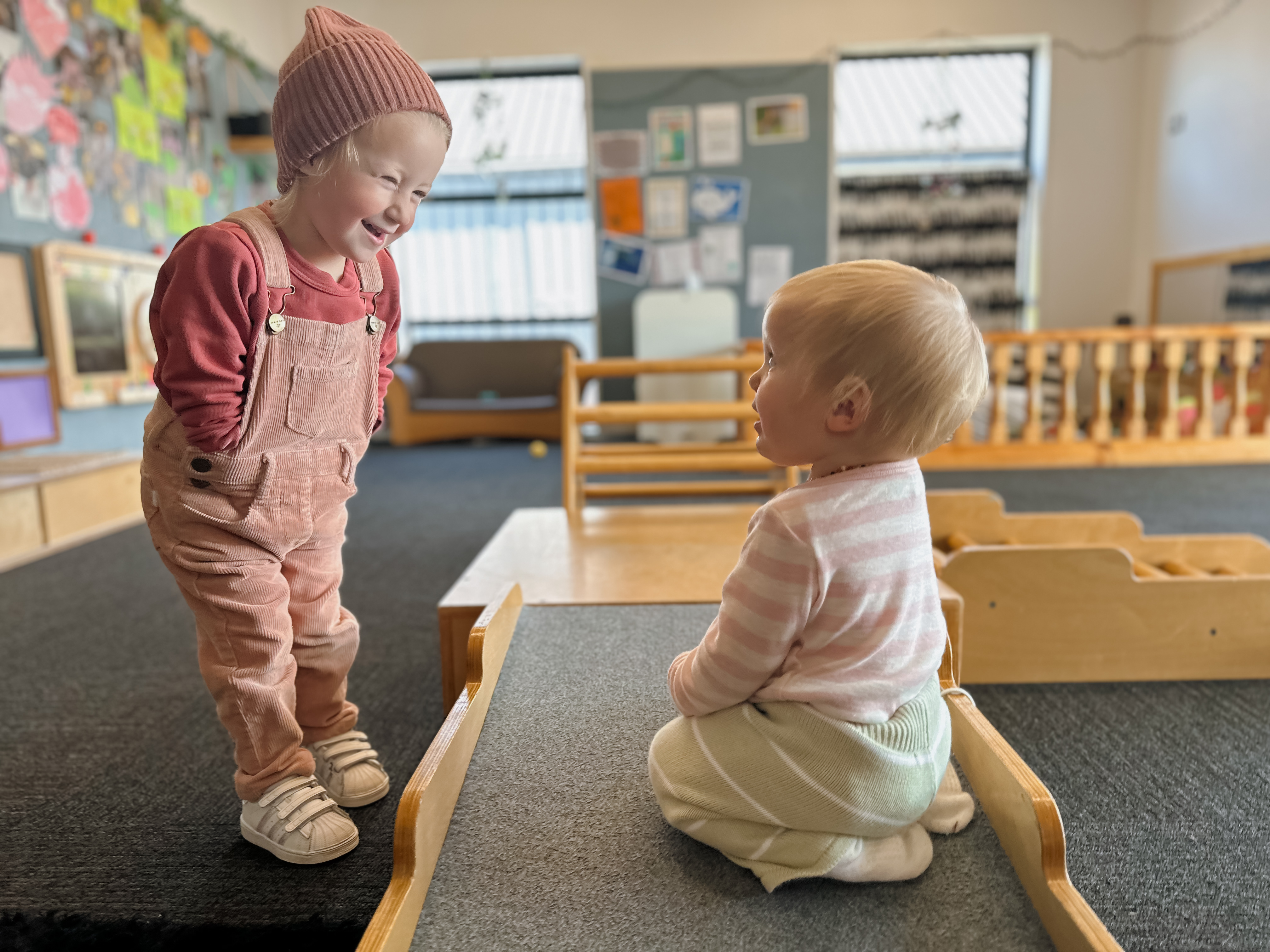Articles
Tuākana-Tēina
If you have had children in early childhood education for a wee while you may have heard of the phrase tuākana-tēina when referring to children’s learning, but what exactly does this mean and how can this social learning benefit your child?
What is tuākana-tēina?
Tuākana-Tēina is a Māori philosophy of care that refers to younger children (tēina) learning from older or more capable children (tuākana).
Children’s minds are very absorbent, taking in the world around them and using every moment

as a learning opportunity. Being around older children is a way for younger children to flourish even more by observing, learning from, and then doing what the older child is doing.
What does Tuākana-Tēina look like in an early learning setting?
There are many opportunities for children to learn through tuākana-tēina relationships in early learning. When children first transition to a new learning space they are often then surrounded by older children who are more confident in their surroundings due to being more familiar with the rhythms of the day. The older children can then provide support and role modelling which can be comforting for the younger child who may still be finding their feet in their new environment.
Providing opportunities for younger children to visit the older children or vice versa also helps these relationships flourish. Older children often love the responsibility entrusted to them when supporting the younger children and both parties benefit from the learning that takes place during these interactions.
Some early learning centres also have mixed age environments where children learn alongside other children of different ages within one space - imagine the opportunities available here!

Relating to others -NZC
Did you know that our early childhood curriculum in New Zealand links in closely with our school curriculum (NZC)?
They both have a similar vision for the children of New Zealand!
One of the key competencies in our NZC is relating to others. This competency focuses on the importance of interacting with a variety of individuals in different contexts. This includes actively listening, exchanging ideas, and appreciating diverse viewpoints.
What a great opportunity children have to develop this competency when engaging in tuākana-tēina relationships!
What are the benefits of Tuākana-Tēina?
There are many benefits from children engaging in Tuākana-Tēina relationships these include:
-Social competency
Children who are learning together are also learning how to navigate social situations including how to express themselves and relate to others which can help develop empathy and self confidence as well as communication skills
-A culture of well-being and responsibility
As children engage in these positive learning interactions, they are learning to take responsibility for both themselves and for others which creates a nurturing culture of wellbeing whilst supporting their leaderships skills.
What does theory tell us?
A well known theorist by the name of Vygotsky proposed that social interactions help children develop their thinking skills. He believed that children learn mainly through interacting with others who know more such as older peers, siblings and adults within the child’s life.
Vygotsky’s sociocultural theory of cognitive development is very similar to the theory involved with tuākana-tēina relationships highlighting the importance of these social interactions on children’s development.
There are many benefits when early learning centres incorporate Tuākana-Tēina opportunities into their daily rituals and rhythms, have you noticed any benefits of these interactions with your child?
For a printable version of this article please click here:
